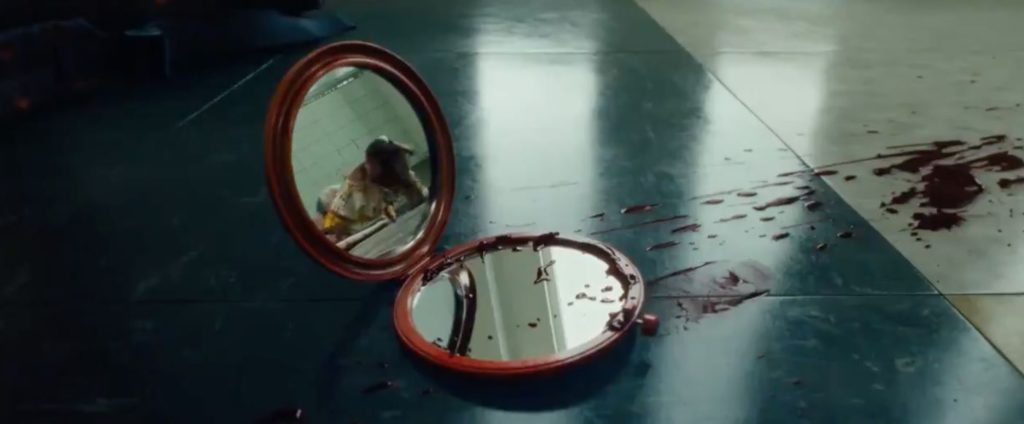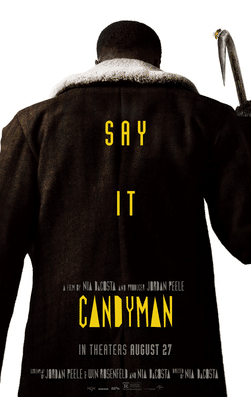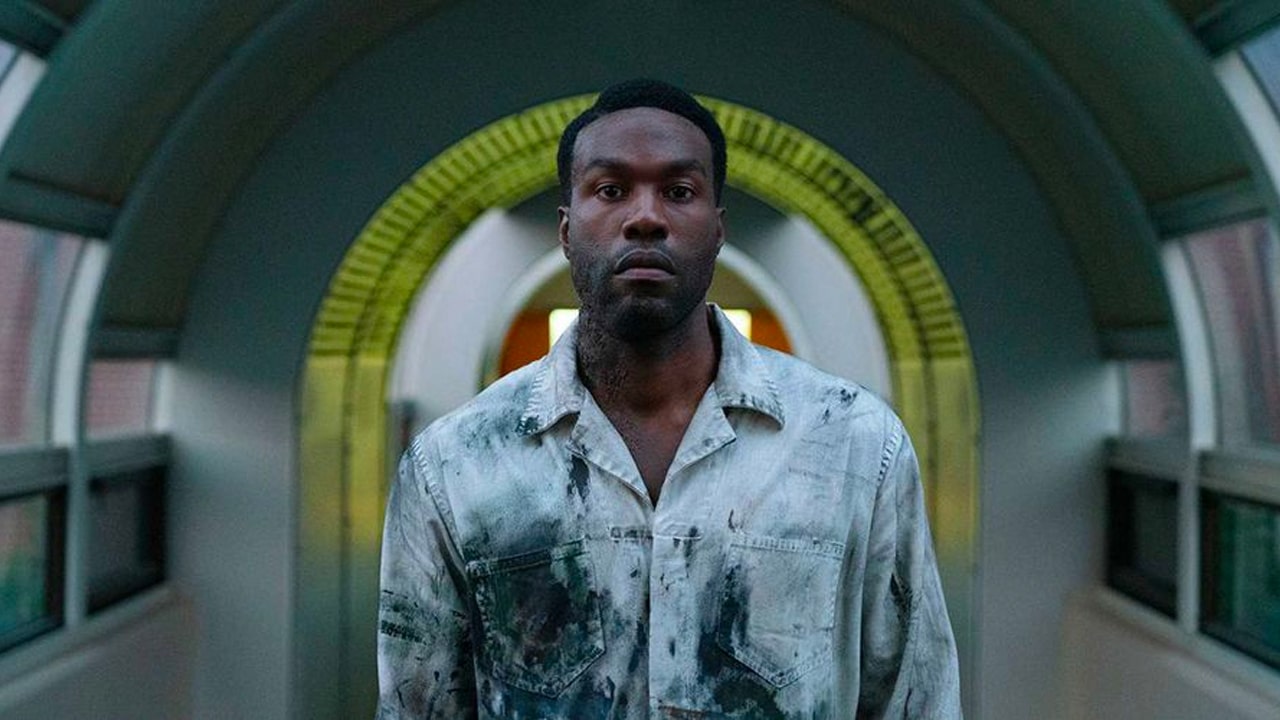
News of a new Candyman film came as quite a surprise; the 1992 film, like a good ghost story itself refracted over time through a Clive Barker short story and a novel before becoming a screenplay, has over the years become a classic, a piece of supernatural cinema which has deeper significance seething underneath all of its gruesome horror. Besides a brand-new Candyman film being a surprise, the nature of the film was a little hard to catch, too; it’s not quite a remake, but positioned in real time, thirty (!) years or so after the ’92 story; it’s not quite a reimagining, as there is significant overlap with Bernard Rose’s screenplay; perhaps the best description of the new film is as an add-on to the mythos of the original film – an expansion pack, if you like. The result is a perfectly watchable horror yarn with some very good features and solid performances, though there are issues here, too. One is the sheer weight of ambition. By opting to explore a certain aspect of the Candyman folklore, the film gives itself far too much to do in its final act. Its other key issue is in its determination to explore race and racism not as a subtext, but as a primary calling – but then, Jordan Peele is involved, and he trusts his audience less and less to get ‘the message’, let alone to get a subtle message.
Painter Anthony (Yahya Abdul-Mateen II) and his curator girlfriend Brianna (Teyonah Parris) live in an affluent area of Chicago which, as a visitor points out to them as they are railing against the evils of white-driven gentrification, is itself part of a gentrified Cabrini Green, a formerly-deprived borough of the city. (This is one of the few moments in the film when there is any deviation from the narrative that white people are sinister bastards and perhaps social class is a consideration, by the way, so it’s worth bringing up). Anthony is struggling to create new work; motivation finally strikes after Brianna’s comic-relief brother Troy tells them a version of the Candyman story after dinner one evening.
Engaged by the mixture of urban legend and the prospect of seeking out something authentic, Anthony heads off into what’s left of the old Cabrini Green with his camera. Here he encounters a local, Burke (Colman Domingo) who has been there longer than the encroaching high-rises, a friendly, helpful guy who fills him in on the changes to Cabrini over the years. However, his information begins to draw Anthony further into the mythos. In a similar way to how Helen Lyle’s academic ambitions drew her closer to the ruinous attentions of Candyman, Anthony’s artistic ambitions prove a kind of devil’s bargain, whereby he gets his inspiration and begins creating new work, but at the expense of the lives of people in his orbit. And again, he has to decipher his role in all of this if he is to protect people he cares about.

Anthony’s direction of travel in this film contains few surprises, really. In this respect, it emulates the 1992 film, right down to an overlap with Helen Lyle and her grisly fate as Anthony’s research brings him into contact with her file. Helen’s fate, after all of the misery entailed upon her by stumbling into a mythos and a community interesting at first only as ‘research’, contains far more pause for thought than anything in the new film, by the way. But the 2021 film does have some interesting, creative aspects to it too, with some fantastic shots which generate unease; the mirror-writing in the opening credits, that upside-down view of the skyscrapers – repeated throughout – which gives the impression of drifting or being dragged backwards. These are good, stylish touches. I also liked the use of reflection throughout the film (mirror reflection, that is). Director Nia DaCosta shows a good appreciation both of horror tropes and more creative uses of the motif, which is encouraging, given her filmography has limited horror in it. But perhaps the most original aspect of this film is also one of its key snags.
Candyman ’92 raises the idea that the Candyman mythos stems at least in part from the needs of an overlooked community to deal with hardship – providing stories, rules, rituals, things to hold people together. Candyman ’21 picks up on this idea and extends it, developing the relationship between folklore, history and community, coming close to suggesting that the figure of the Candyman – in all the various permutations which the film briefly suggests – offers a variant of folk horror, incarnating down through the years, a kind of obligatory presence. It’s an intriguing premise, providing some neat tie-ins to the original, though sadly the film does not have enough time to develop this very much. There are questions left dangling throughout; not in a way which suggests that Peele wanted to tantalise us, but more in the sense of these points being overlooked in the rush to get to a big finale. By the final scenes, several necessary plot points had been left out altogether, leading to a lurch towards grotesque body horror which needed to take a short cut in order to approach the gruesome, but fulfilling end scenes of the ’92 story. In the rush, questions about Anthony and Brianna’s family background, suggested to be relevant to their characterisation and the plot, were brushed aside. Together with the sudden shift in Anthony’s character come the final act, the rush feels like it has a significant impact.
Perhaps devoting less time to characterising every single white character variously as a chancer, a creep, a bully or a murderer – whilst giving over a fair wad of the film’s run time to have them announce as much in their spell-it-all-out lines – would have allowed more attention to be paid to the film’s more interesting supernatural content. Peele can’t help himself, and in a different article it could be interesting to unpick this approach from this particular filmmaker. This film is far more about acrimony than allegory, and it makes for a crude element of ‘Candyman-as-avenger’ which detracts from Candyman’s better qualities. Still, production values here are decent overall, and there is enough going on to make this a perfectly watchable, entertaining film, albeit one which throws the merits of the original into even sharper relief.
Candyman (2021) is in cinemas now.
